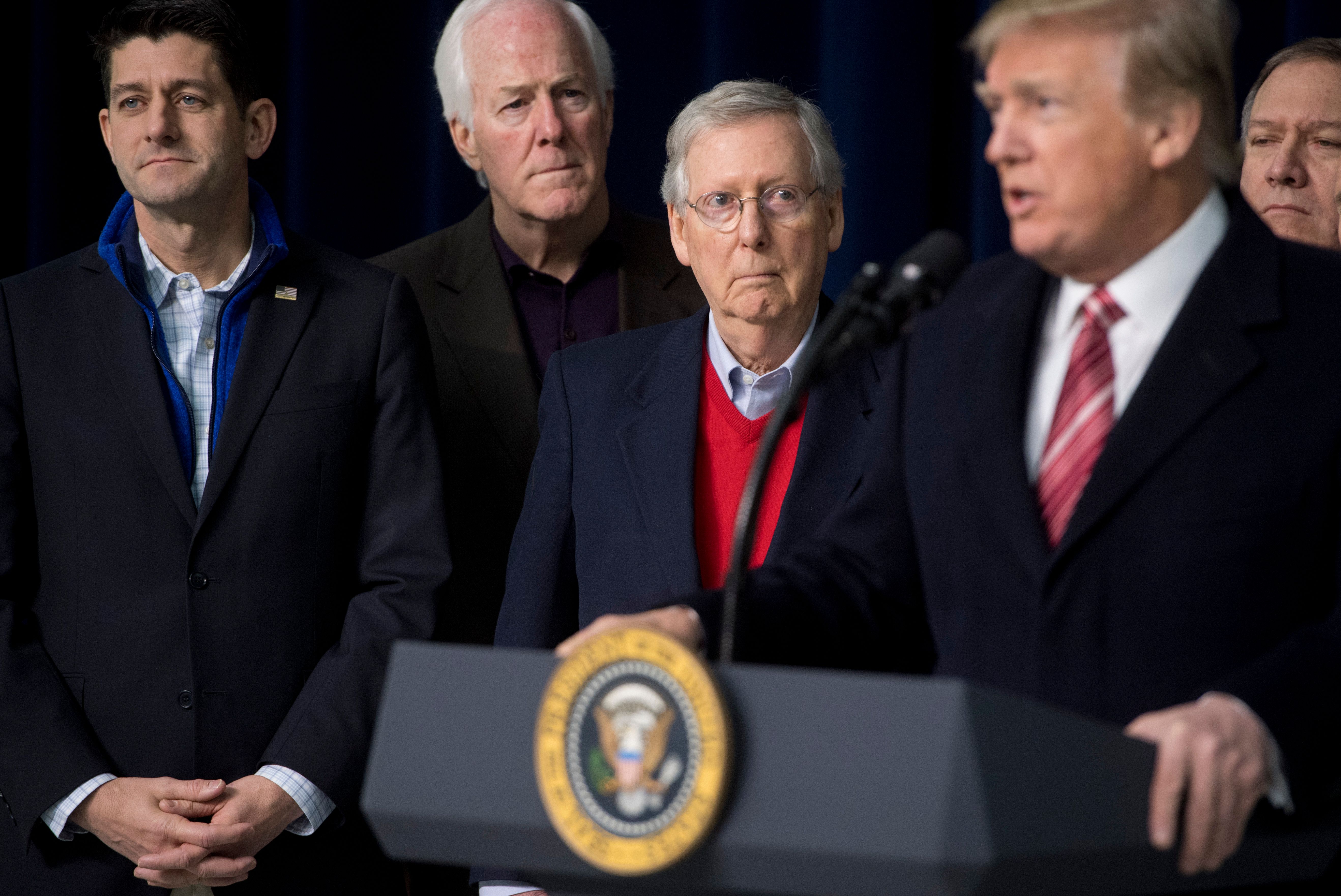Republicans have another short-term spending bill to avert a shutdown, but they may not have the votes


A free daily email with the biggest news stories of the day – and the best features from TheWeek.com
You are now subscribed
Your newsletter sign-up was successful
House Republican leaders proposed a fourth stopgap spending measure to their caucus on Tuesday night, betting that a few popular sweeteners and opposition from Democratic leaders would drum up enough GOP support to send the measure to the Senate, with or without Democratic votes. The continuing resolution would finance the government at current levels through Feb. 16, delay several ObamaCare-related taxes for a year or two, and finance the Children's Health Insurance Program (CHIP) for six years. The third and current short-term spending package expires at midnight Friday.
The spending bill needs 218 votes in the House, and most Republicans reportedly backed the measure Tuesday night, sometimes unenthusiastically. But House Freedom Caucus Chairman Mark Meadows (R-N.C.) balked. "Based on the number of 'no' and undecided votes, there is not enough votes for a Republican-only bill," he said, dismissing the ObamaCare tax delays as a "gimmick." In the Senate, nine Democrats would have to vote with every Republican to pass the resolution, and Democrats are threatening to withhold their votes unless Republicans include a solution for DREAMers, the 700,000 young immigrants who are already losing their work permits and face deportation starting in March under President Trump's executive order.
Trump and Republicans are banking on Democrats folding, arguing that not voting to avert the first government shutdown since 2013 would harm the military (a decision that appears to rest at least in part with Trump, who can exempt "essential" personnel). Government shutdowns when one party controls both Congress and the White House are rare. "We don't need any Democrats in the House," said Rep. Tom Cole (R-Okla.). "And I don't think the Democrats in the Senate have the nerve to shut down the government." Lawmakers are working to salvage a bipartisan plan to protect DREAMers, but are pessimistic they would have it ready by Friday, especially with the White House calling it dead on arrival.
The Week
Escape your echo chamber. Get the facts behind the news, plus analysis from multiple perspectives.

Sign up for The Week's Free Newsletters
From our morning news briefing to a weekly Good News Newsletter, get the best of The Week delivered directly to your inbox.
From our morning news briefing to a weekly Good News Newsletter, get the best of The Week delivered directly to your inbox.
A free daily email with the biggest news stories of the day – and the best features from TheWeek.com
Peter has worked as a news and culture writer and editor at The Week since the site's launch in 2008. He covers politics, world affairs, religion and cultural currents. His journalism career began as a copy editor at a financial newswire and has included editorial positions at The New York Times Magazine, Facts on File, and Oregon State University.
-
 How the FCC’s ‘equal time’ rule works
How the FCC’s ‘equal time’ rule worksIn the Spotlight The law is at the heart of the Colbert-CBS conflict
-
 What is the endgame in the DHS shutdown?
What is the endgame in the DHS shutdown?Today’s Big Question Democrats want to rein in ICE’s immigration crackdown
-
 ‘Poor time management isn’t just an inconvenience’
‘Poor time management isn’t just an inconvenience’Instant Opinion Opinion, comment and editorials of the day
-
 Witkoff and Kushner tackle Ukraine, Iran in Geneva
Witkoff and Kushner tackle Ukraine, Iran in GenevaSpeed Read Steve Witkoff and Jared Kushner held negotiations aimed at securing a nuclear deal with Iran and an end to Russia’s war in Ukraine
-
 Pentagon spokesperson forced out as DHS’s resigns
Pentagon spokesperson forced out as DHS’s resignsSpeed Read Senior military adviser Col. David Butler was fired by Pete Hegseth and Homeland Security spokesperson Tricia McLaughlin is resigning
-
 Judge orders Washington slavery exhibit restored
Judge orders Washington slavery exhibit restoredSpeed Read The Trump administration took down displays about slavery at the President’s House Site in Philadelphia
-
 Hyatt chair joins growing list of Epstein files losers
Hyatt chair joins growing list of Epstein files losersSpeed Read Thomas Pritzker stepped down as executive chair of the Hyatt Hotels Corporation over his ties with Jeffrey Epstein and Ghislaine Maxwell
-
 Judge blocks Hegseth from punishing Kelly over video
Judge blocks Hegseth from punishing Kelly over videoSpeed Read Defense Secretary Pete Hegseth pushed for the senator to be demoted over a video in which he reminds military officials they should refuse illegal orders
-
 Trump’s EPA kills legal basis for federal climate policy
Trump’s EPA kills legal basis for federal climate policySpeed Read The government’s authority to regulate several planet-warming pollutants has been repealed
-
 House votes to end Trump’s Canada tariffs
House votes to end Trump’s Canada tariffsSpeed Read Six Republicans joined with Democrats to repeal the president’s tariffs
-
 Bondi, Democrats clash over Epstein in hearing
Bondi, Democrats clash over Epstein in hearingSpeed Read Attorney General Pam Bondi ignored survivors of convicted sex offender Jeffrey Epstein and demanded that Democrats apologize to Trump
